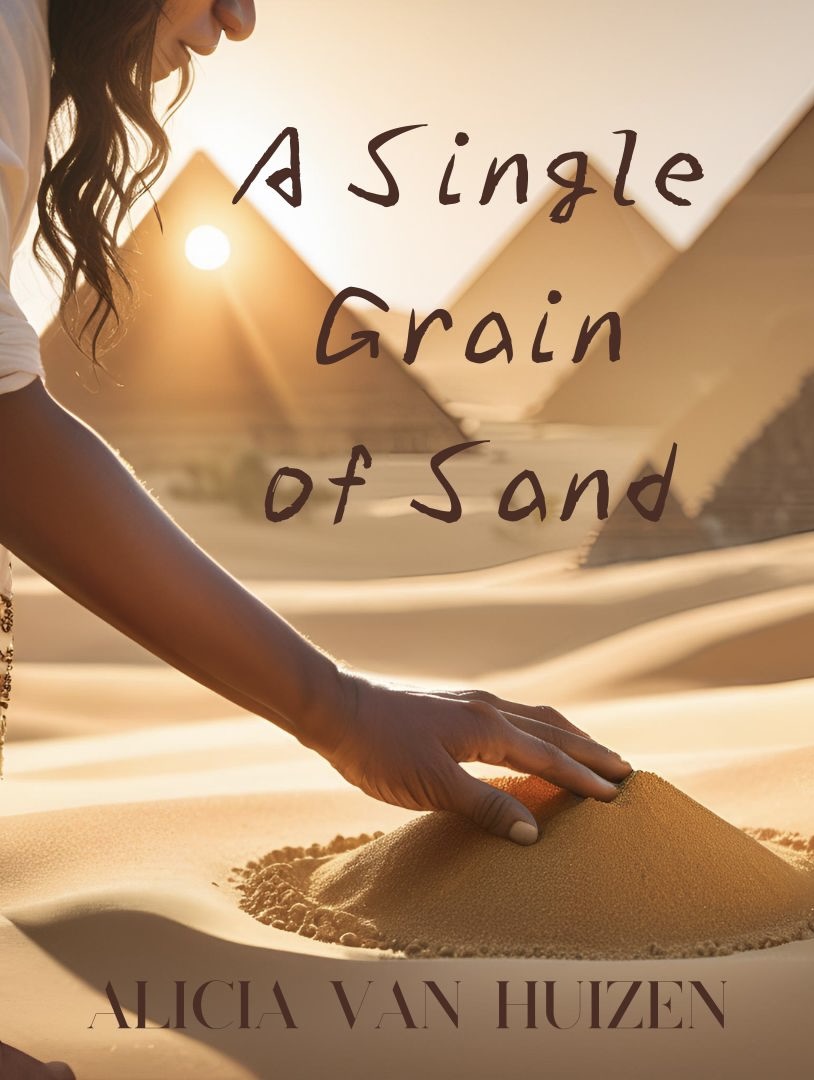A Single Grain of Sand
One final agonizing groan ended with the harsh grating of an infant’s cry.
Shiphrah stared wide-eyed at the bloody mess on her apron. Her stomach cinched.
“Puah, I need you here.” She swallowed the tremors in her voice.
Sliding her supporting arms out from behind the new mother, the other midwife circled around the birthing stool before kneeling beside Shiphrah on the dirt floor. “Oh, HaShem, have mercy. What do we do now?”
Soft moans answered Puah’s anxious question.
‘It’s their blood or yours’. Pharaoh’s words clanged like gongs in Shiphrah’s ears, drowning out the newborn’s wail.
“Just close your eyes, Irit.” Shiphrah tapped the woman’s knee on the stool across from her. “And breathe. That’s it.” Jerking her eyebrows, she motioned for Puah to attend the patient. They could not let on. Irit must believe all is well. At least, until they figured out what to do.
Inhaling a jagged breath, she pressed the tiny aproned bundle against her thundering chest. Think, Shiphrah, think. She had known this day would come. Had tried to prepare herself for the grotesque task now required of her. Or, could she have misinterpreted her orders?
Fresh feces fouled the already stale air, clouding her focus. One wrong decision now would cost her own life.
Shouts from the foreman resonated down the alleyways surrounding the tiny mud brick home.
“No, no, no. They’re coming.” Puah abandoned Irit’s side, dropping the soiled linen into the waste pot. She pressed knuckles into her headscarf now plastered to her sweat-stained brow. “Shiphrah. What are we going to do?”
“Is everything al-alright? Where’s my baby?”
Shiphrah locked gazes with Irit. If someone had indeed summoned the guards, they had maybe minutes until they arrived. Her heart pounded out the time in her chest. With every beat their silent footsteps drew closer. “Everything’s fine, Irit. Rest now.” She wiped her crimson stained hand on her apron. My blood or his?
Puah lifted the woman enough to remove the stool beneath her, laying her back on the dirt floor, one cushion at her head.
Irit collapsed back on the pillow, allowing Shiphrah room to breathe again. Had they only arrived sooner … But we didn’t.
Puah straightened beside her, arms hanging down in awkward uncertainty. “Fine?” She whispered.
A solution took shape in Shiphrah’s mind, and she gripped her friend’s wrist. “Yes. By providence, it is. We came too late.” She motioned toward the reed knife by the stool. “Give it here.”
“You’re going to—” Color drained from Puah’s cheeks. “To go through with it?”
…
